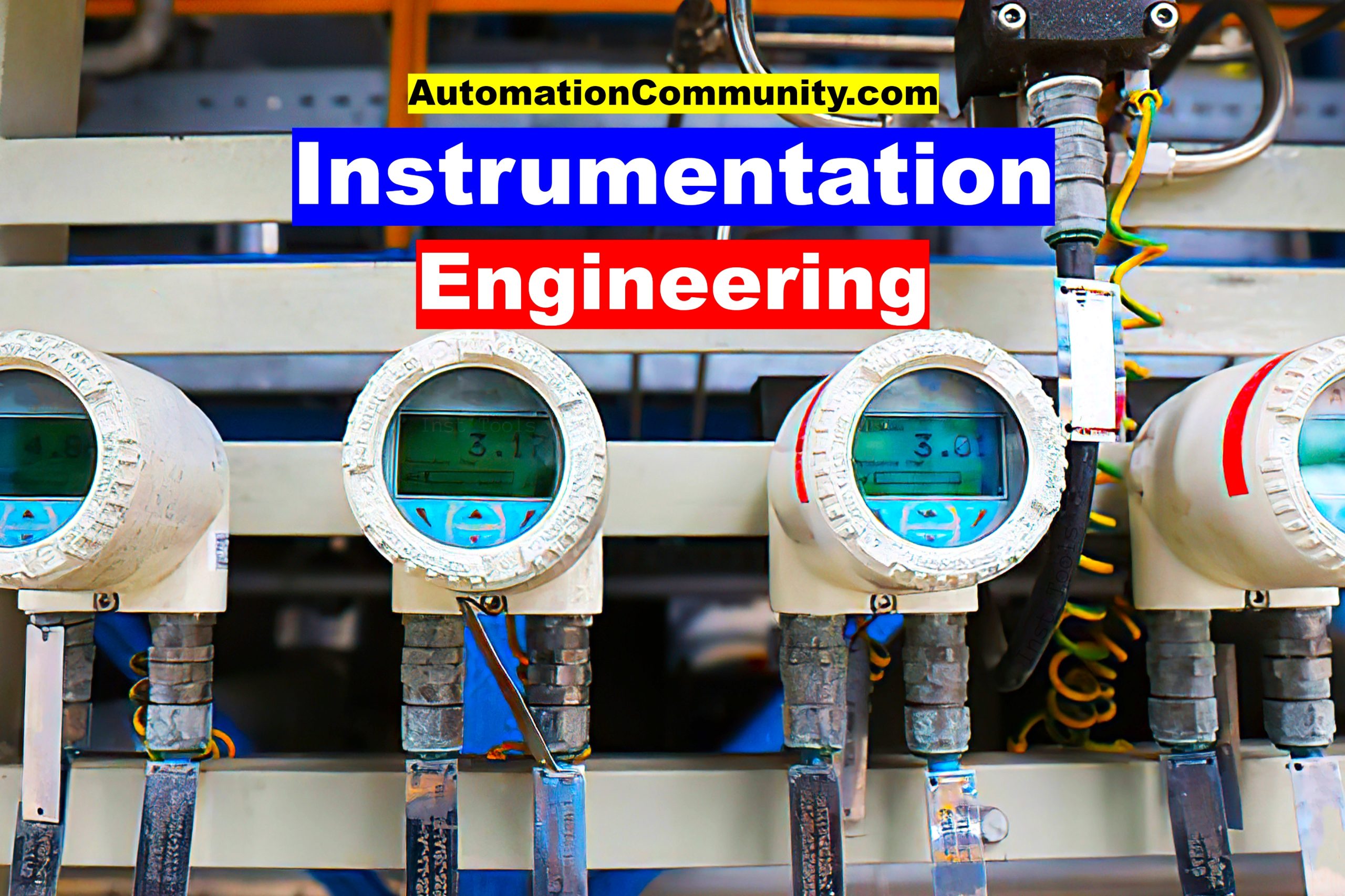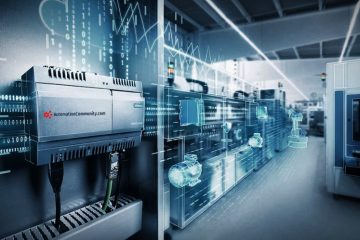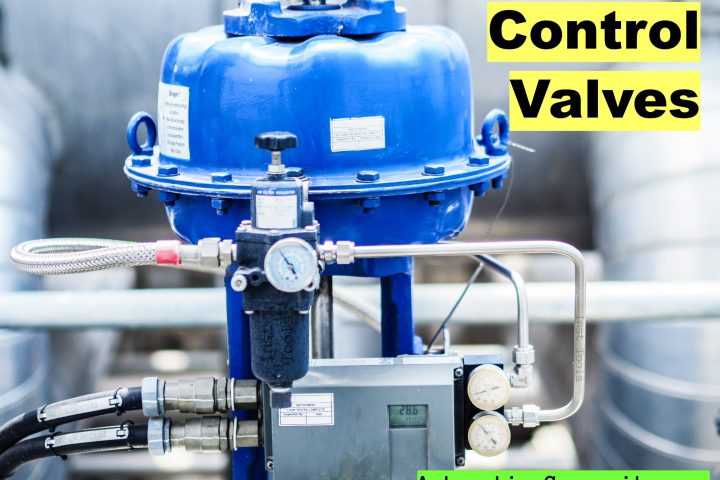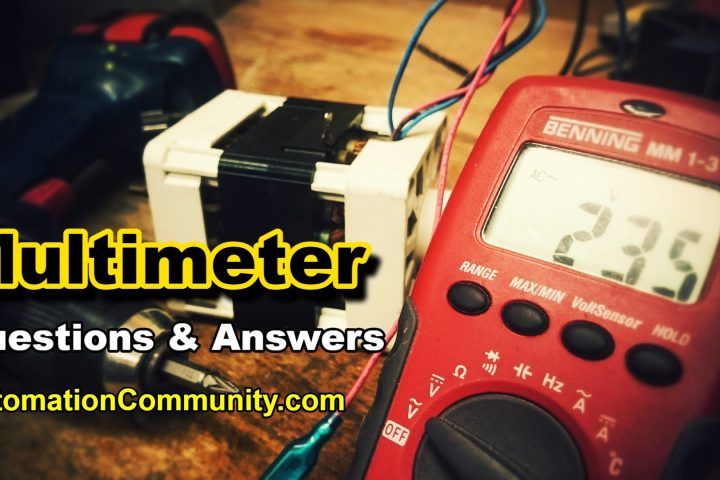What is Instrumentation? Purpose, Career, Salary, Skills
Instrumentation refers to the tools and devices that are used to measure, control, and monitor industrial processes. These tools and devices, which are known as instruments or measuring instruments, can be used to measure a wide range of physical quantities, such as temperature, pressure, flow rate, level, and pH.
Instrumentation is an important aspect of modern industrial systems, as it allows operators to monitor and control processes in real time, ensuring that they are operating efficiently and safely. The use of instrumentation can help improve productivity, reduce costs, and improve the quality of products.
Instrumentation can be classified into several categories, including electrical instrumentation, mechanical instrumentation, and process instrumentation.
Electrical instrumentation includes tools and devices such as voltmeters, ammeters, and oscilloscopes that are used to measure electrical quantities.
Mechanical instrumentation includes tools and devices such as pressure gauges, flow meters, and thermometers that are used to measure mechanical quantities.
Process instrumentation refers to the tools and devices that are used to measure and control industrial processes, such as temperature controllers and flow controllers.
Purpose of Instrumentation

The main purpose of instrumentation is to measure, control, and monitor industrial processes. Some specific purposes of instrumentation include:
- Improving efficiency: By measuring key process variables, such as temperature, pressure, and flow rate, instrumentation can help optimize process parameters to improve efficiency and reduce costs.
- Ensuring safety: Instrumentation can be used to monitor process variables and detect when they are outside of safe operating limits. This can help prevent accidents and ensure the safe operation of industrial systems.
- Maintaining quality: Instrumentation can be used to monitor process variables to ensure that they remain within specified limits, which can help maintain the quality of products.
- Debugging and troubleshooting: By measuring and monitoring process variables, instrumentation can help identify problems with industrial systems and assist with troubleshooting.
- Remote monitoring and control: Modern instrumentation systems often include remote monitoring and control capabilities, allowing operators to monitor and control processes remotely.
Instrumentation helps improve the efficiency, safety, and quality of industrial processes, and allows for remote monitoring and control.
Instrumentation Engineer
An instrumentation engineer is a professional who designs, installs, calibrates, and maintains devices that measure and control physical quantities such as flow, temperature, level, pressure, and chemical composition. These devices, known as instrumentation, are used in a wide range of industries, including manufacturing, power generation, oil and gas, chemical processing, and many others.
Instrumentation engineers are responsible for specifying the type and location of the instrumentation, as well as the control systems that operate the instruments. They also troubleshoot and repair any issues that may arise with the instrumentation and control systems.
Instrumentation Engineering
Instrumentation engineering is the branch of engineering that deals with the design, installation and maintenance of devices used to measure and control physical quantities such as flow, temperature, level, pressure, and chemical composition.
Instrumentation Career
A career in instrumentation can be rewarding and challenging, as it involves designing, installing, calibrating, and maintaining devices.
To become an instrumentation engineer, you typically need to have a bachelor’s degree in instrumentation engineering or a related field, such as electrical engineering or mechanical engineering. Some employers may prefer candidates who have a master’s degree or a higher level of education.
In this career, you will have the opportunity to work with a wide range of technologies and apply your problem-solving skills to complex technical challenges. You will also have the opportunity to work with a diverse group of people, including other engineers, technicians, and operators. If you enjoy working with technology and are interested in helping to design and maintain systems that measure and control physical quantities, a career in instrumentation may be a good fit for you.
Instrumentation Engineer Roles and Responsibilities
The roles and responsibilities of an instrumentation engineer may vary depending on the specific job and industry, but some common responsibilities include:
- Designing and specifying the type and location of instrumentation and control systems.
- Installing and commissioning instrumentation and control systems.
- Calibrating and testing instrumentation to ensure it is functioning correctly.
- Maintaining and repairing instrumentation and control systems as needed.
- Managing the inventory of spare parts and equipment.
- Writing technical reports and documentation related to the instrumentation and control systems.
- Providing technical support and troubleshooting assistance to other engineers, technicians, and operators.
- Participating in continuous improvement projects to optimize the performance of the instrumentation and control systems.
- Ensuring compliance with safety regulations and industry standards.
Instrumentation engineers may work in a variety of settings, including offices, laboratories, and industrial plants. They may also work with a wide range of technologies and equipment, including sensors, transmitters, control valves, and other types of instrumentation.
Instrumentation Engineer Skills
Instrumentation engineers should have a strong foundation in engineering principles and a good understanding of electrical, mechanical, and control systems. In addition, they should have the following skills:
- Knowledge of sensors and transmitters: Instrumentation engineers should have a good understanding of the various types of sensors and transmitters used to measure and control physical quantities, as well as their capabilities and limitations.
- Control systems knowledge: Instrumentation engineers should be familiar with control systems, including programmable logic controllers (PLC) and distributed control systems (DCS), and be able to design and implement control strategies using these systems.
- Problem-solving skills: Instrumentation engineers should be able to troubleshoot and solve complex technical problems that may arise with the instrumentation and control systems.
- Communication skills: Instrumentation engineers should be able to communicate effectively with other engineers, technicians, and operators, as well as with non-technical personnel such as managers and customers.
- Interpersonal skills: Instrumentation engineers should be able to work effectively in a team environment and be able to manage and coordinate the work of other team members.
- Computer skills: Instrumentation engineers should be proficient with computer software and hardware, including programming languages and computer-aided design (CAD) tools.
- Attention to detail: Instrumentation engineers should be meticulous and have strong attention to detail, as small mistakes or errors in the instrumentation and control systems can have serious consequences.
Instrument Types
Some common types of instruments include:
- Sensors: Sensors are devices that detect changes in physical quantities such as temperature, pressure, or motion, and convert these changes into electrical signals that can be measured and monitored. Examples of sensors include thermocouples, pressure transducers, and accelerometers.
- Transmitters: Transmitters are devices that receive signals from sensors and transmit them over long distances using electrical or wireless signals. Transmitters are used to transmit signals from sensors located in hard-to-reach or hazardous areas to remote locations where they can be monitored and analyzed.
- Control valves: Control valves are used to regulate the flow of fluids such as gases, liquids, and slurries. They are typically used in conjunction with control systems to maintain a desired process variable, such as temperature or pressure.
- Actuators: Actuators are devices that convert electrical signals into mechanical motion. They are used to operate control valves, dampers, and other types of mechanical equipment.
- Displays and indicators: Displays and indicators are used to visually display process variables and provide alerts or alarms when certain conditions are met. Examples include digital displays, LED indicators, and alarm bells.
- Data acquisition and recording systems: Data acquisition and recording systems are used to collect, store, and analyze data from sensors and transmitters. These systems can be used to monitor and optimize the performance of processes and equipment.
Instrumentation Engineer Salary
The salary of an instrumentation engineer can vary depending on a number of factors, including the individual’s education and experience, the industry in which they work, and the location of their job. According to salary data from Glassdoor, the average salary for an instrumentation engineer in the United States is around $80,000 per year. However, salaries can range from around $60,000 per year for entry-level positions to over $100,000 per year for more experienced engineers.
In addition to a base salary, instrumentation engineers may also receive benefits such as health insurance, retirement plans, and paid time off. Some companies may also offer bonuses or other incentives based on performance.
It’s worth noting that salary can vary significantly depending on the specific industry and location. For example, instrumentation engineers working in the oil and gas industry may earn higher salaries than those working in other industries, while engineers working in major cities may earn more than those working in smaller towns or rural areas.















Comments
4
Thanks for this brief but concise information. i am excited to see this here and hope to see more.
Thanks for such a great information about Instrumentation Engineering field.
I’m interested in this. I hope to become one sooner. Thanks for the update.
Thankyou for such a wonderful content.